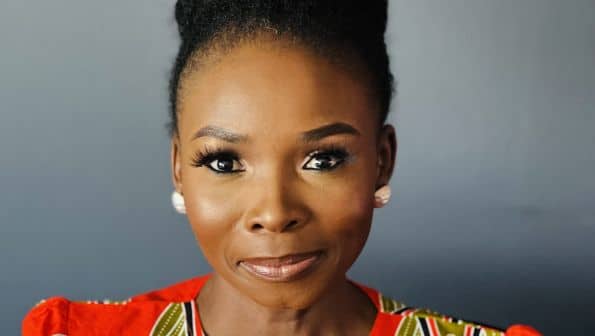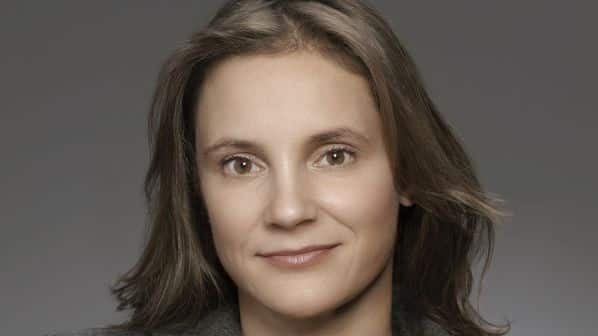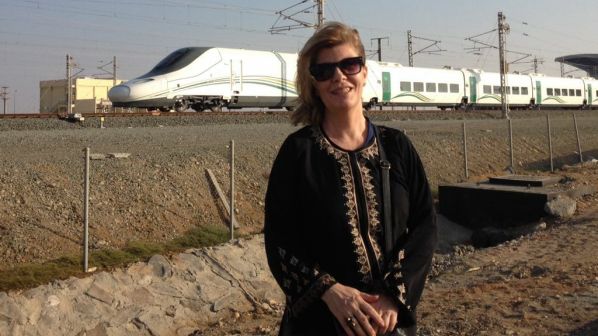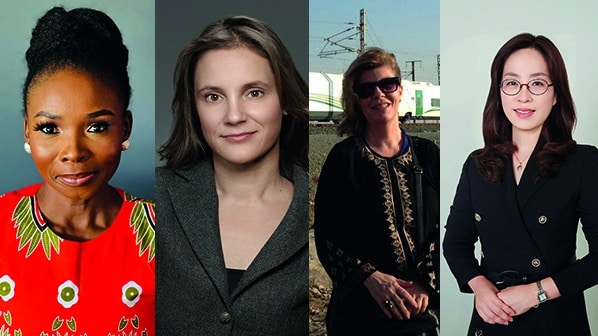WELCOME to IRJ’s Women in Rail Award 2023. Following the success of last year’s inaugural edition we have decided to repeat the initiative in 2023. What follows over the next 14 pages are career profiles of 16 remarkable women working across the railway industry in all four corners of the globe.
The initial intention was to profile 10 winners. However, the quality of the more than 60 entries that we received was so high, their stories so compelling, that we decided to expand the scope.
Unfortunately, the issue of female representation remains a major issue throughout the railway industry. It was readily apparent at the UIC High-Speed World Congress in Marrakech in March where the vast majority of speakers at the main sessions were men. Indeed, during the plenary session on International Women’s Day on March 8, the sole female representative was the moderator, a fact which was candidly pointed out.
That the issue was recognised is arguably half of the battle. Certainly, there has been major progress in recent years to boost female representation, particularly in top positions, as we see each month in IRJ’s Fresh Faces section. Yet more can and needs to be done. Research has shown that companies with more diverse workforces are more likely to experience greater financial returns than less diverse companies. There is really no excuse in the 21st century for women to be excluded.
Many of our winners are industry veterans who have risen to prominent positions in their respective organisations, sometimes against the odds. All were nominated by a peer, and many spoke of how their colleagues regularly go above and beyond to support and nurture the next generation of female talent entering the industry. This is another major recruitment issue facing the railway industry that we will revisit in the same format in the December edition of the magazine with the Young Rail Leaders Award. Nominations will open in October.
These initiatives shine a light on the individual. Our intention is for the stories of the winners of the Women in Rail Award to inspire others, and we hope that you will enjoy reading the following profiles as much as we have enjoyed putting them together.
Mesela Kope-Nhlapho, CEO, African Rail Industry Association, South Africa
FROM humble origins growing up in the KwaThema township in the large suburban Ekurhuleni district east of Johannesburg, Mesela Kope-Nhlapho has cemented her place in the country’s rail and industry sectors and in the field of technical business development in a traditionally male-dominated industry.
Trained in law, she has achieved prominence in the industry to a degree where she is the voice of rail companies, and is often seen on South Africa’s national TV channels and can also be heard voicing strong opinions in her podcasts. She has recently given a cautious welcome to the initiative of South African president, Mr Cyril Ramaphosa, requiring Transnet to allow third-party network access for private freight operators and to implement reforms to help end the country’s current logistics crisis.

Kope-Nhlapho was recently quoted by Business Maverick as saying that her interest in the rail industry was sparked by growing up mostly around boys. However, she adds that her resilience and fearlessness come from the black women who brought her up, particularly her mother and grandmother. She says the name Mesela means “tail” or “backbone” - symbolising a sense of direction and support. Kope-Nhlapho adds that the environment in which she grew up meant she became a person not to be pushed around and was in any case a natural-born leader.
During her 20 years and more in the rail industry, Kope-Nhlapho says she has had to cut through racism, sexism, intimidation and victimisation. Starting her career as a quality control manager at Pro-Tech Galvanizers, responsible for a team of 18 men, she learnt to “develop a language to speak to them so they didn’t see me as a female but as a colleague.”
She has sometimes dealt with both racism and sexism by invoking her tough township origins. Kope-Nhalpho says she makes sure that her presence and that of other women is felt and “that we are not going anywhere.” She acknowledges that there is still a shortage of women in the rail industry due to a variety of issues but she has offered support and has encouraged more younger women to join the industry and beat down the barriers of sexism and racism.
As her nomination notes: “She is an ambassador to overall upliftment as she also recruits interns who need work experience. Mesela is a natural leader and not afraid to voice her opinion. She puts others ahead of herself.”
Jocelyn Gabrynowicz Hill, general counsel and corporate secretary, Conrail
WITH nearly 20 years’ legal experience and almost a decade in the rail industry, Jocelyn Gabrynowicz Hill has been a catalyst for change and innovation.
Nominating Hill, Conrail president and COO, Mr Brian Gorton, says the partnerships Hill has created with city, state, and federal stakeholders transformed once contentious relationships into trusted ones. In addition, she uses her position and influence as general counsel to create a more diverse legal team including outside counsel. “As a woman in a male-dominated field, Hill leads with confidence, credibility, and compassion,” Gorton says.
Hill earned her juris doctor degree from the Pennsylvania State University Dickinson School of Law and is a member of the bar in Pennsylvania and New Jersey. She has a bachelor of arts degree from Kenyon College and is a Leadership in Energy and Environmental Design (LEED) accredited professional, specialising in building design and construction. Hill received a certificate in railway management from Michigan State University and is a certified railway conductor.

She previously served as a commissioner on the Philadelphia Gas Commission, is currently on the advisory boards of Bankroll and the Schuylkill River Development Corporation, and has served on the board of various non-profit organisations, including Operation Homefront, CraftNow, and South of South Neighbourhood Association (SOSNA).
During her tenure at Conrail, Hill has developed critical relationships with key stakeholders and legislators in New Jersey, Philadelphia, Detroit, Chicago and Washington DC. She is responsible for handling all aspects of federal and state PPP projects for Conrail, securing more than $US 70m in public funding, and serves as public and media relations spokesperson.
In addition to using her funding resources to foster a more diverse legal team, Hill has also shown a unique ability for turning under-utilised assets into positive landmarks. She was instrumental in Detroit’s acquisition of a 12.8km section of disused railway for the development of the Joe Louis Greenway, and also worked to design and complete a multi-million-dollar clean-up of the abandoned Richmond Industrial Track in Philadelphia, colloquially referred to as a “heroin hellscape.”
During the Covid-19 crisis, Hill adapted Conrail’s business continuity plan, including contingency planning for service continuity. She communicated daily with the board of directors and management, instituting daily operations calls to discuss crew and supply availability and the evolution of federal, state, and local emergency orders. She worked with Conrail’s human resources department to develop company Covid protocols and a communications plan. When Conrail experienced a major cyber security attack during the pandemic, Hill spearheaded the company’s response and implementation of enhanced cyber security measures.
For much of 2019 and 2020, Hill led Conrail through the renewal of the company’s three operating agreements with its parent companies Norfolk Southern (NS) and CSX. She developed the strategic plan to review the overall business to identify areas of risk and chart a course for the ongoing success and performance of the company. Renewing these agreements was critical to the company’s continued business operations and was ultimately accomplished with little fanfare and without triggering the need for regulatory intervention.
Pilar Cutanda, Haramain project finance and administration manager, Renfe Operadora, Saudi Arabia
THE Haramain high-speed line has arguably become a modern-day icon of Saudi Arabia. The 453km railway that runs between the holy cities of Mecca and Medina opened in 2018 and is playing a critical role in transporting pilgrims between the holy cites, Jeddah and the city’s international airport.
The project has also proven influential in modernising Saudi Arabia’s attitude to female employment. A critical person in this evolution has been Pilar Cutanda, the project’s finance and administration manager, and one of the few women who worked on the project in the early years of operation.
Cutanda moved to Saudi Arabia in 2018, at a time when women were still unable to legally drive in the country. She was given a driver to take her to work, a luxury not everyone in Saudi Arabia is able to afford and a major obstacle to developing a professional career for women. This was undoubtedly a daunting experience. However, Cutanda did not wilt. Quite the contrary. She dealt with her male counterparts face to face and as equals, winning their respect and ensuring that they listened to her, which had not always been the case in the past. Interestingly, her choice of dress and conscious decision not to cover her hair were accepted and have proven an inspiration to local women.

As her nominator writes: “Undoubtedly her passage through the Haramain project has left a permanent and influential mark for Saudi female railway workers. Her example has boosted the expectations of female colleagues and has supported their hopes of improvements in labour conditions.”
Cutanda was by no means a novice when she went to Saudi Arabia. She has more than 35 years’ experience of working in the railway sector and an intricate knowledge of finance and administration.
She joined Spanish national operator Renfe in 1990, serving as director of capital markets and financial programming from 1991 to 2003, finance director from 2003 to 2013, and financial and working capital manager from 2013 until 2018. And after five years in Saudi Arabia, she returned to Spain in April 2023, but continues to advise for Renfe Operadora on the Haramain project, as one of the 12 companies in the Al Shoula consortium.
This work extends to other key international projects. Cutanda has coordinated Renfe’s financial and administrative activities on the Mayan Train project in Mexico, the Texas Central high-speed project in the United States, work with Leo Express in the Czech Republic, and in Kenya, underlining her status as a key component of the company’s international machine.
Hyun Ah Cho, deputy general manager, overseas business division, Korail, Korea
GROWING international business activities is a key part of Korean national operator Korail’s strategy for growth. Playing an essential role in this work and possessing some impressive experience of international project delivery is Hyun Ah Cho, Korail’s deputy general manager of the overseas business division.
Among the projects that Cho has worked on is consulting work for Vietnam Railways, an upgrade scheme and a railway capacity and environment project for Myanmar Railways, and the procurement of 20 locomotives for Bangladesh Railways. Much of this work is done under Official Development Assistance agreements signed by these countries with the Korean government, from which Korail has been able to more widely deploy its own technologies and know-how.

Among Cho’s key tasks has been to design international training sessions. With Korail’s workforce only 10% female, a key focus for Cho was to involve women in these sessions. She set a target for 20% female representation and many of the training topics have been targeted at roles where women typically have higher representation, such as finance and customer service. She has also supported and nominated female colleagues from developing countries to join long-term scholarship programmes at Korean universities.
Cho is a keen proponent of Korean culture and the Korean language, hosting several sessions designed to encourage participation while working on international assignments. She also taught traditional Korean dance at an international school, helping to establish a dance event that is still continuing.
These personal skills and her excellence in risk management have enabled Cho to effectively tackle unexpected problems big and small. It also established her as what her nominator describes as the “bridge of Korail,” due to the critical role she plays in connecting the company with other projects, players and partners around the world.
Part 2 of Women in Rail 2023 can be found here
Part 3 of Women in Rail 2023 can be found here
Part 4 of Women in Rail 2023 can be found here

